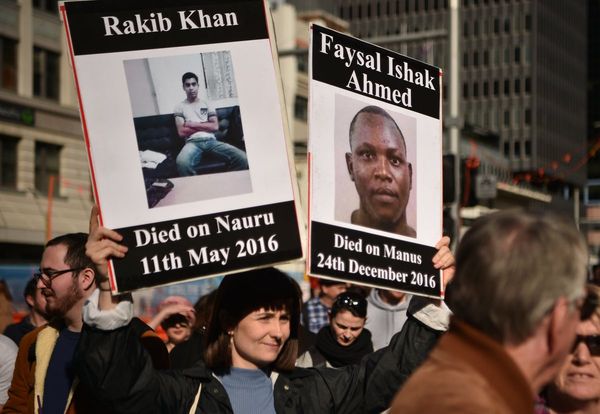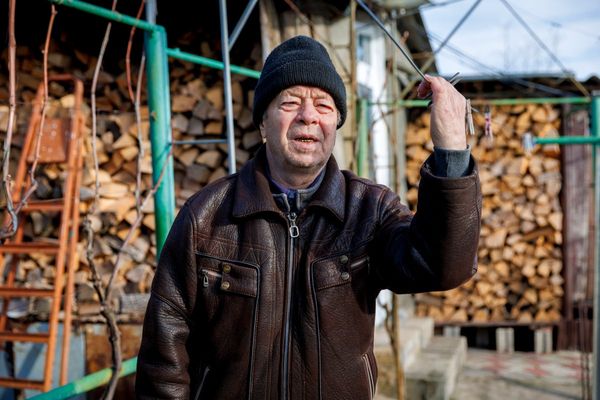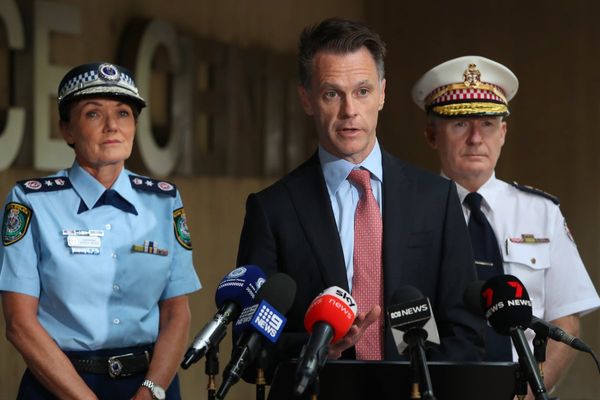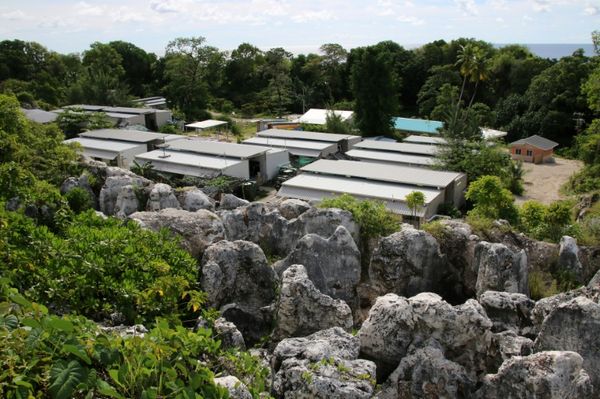Mourners have voiced grief and anger at a rare public commemoration in Russia for the scores of soldiers killed on New Year’s Eve.
Admitting its worst military losses from a single Ukrainian attack, Russia on Tuesday said 89 servicemen were killed when a temporary deployment point was struck in Makiivka, a town in the eastern region of Donetsk partially held by separatists since 2014.
The strategic communications directorate of Ukraine’s armed forces claimed on Sunday that about 400 mobilised Russian soldiers were killed and about 300 more were wounded. That claim could not be independently verified.
Russian bloggers say many of the victims were reservists recently mobilised into the army.
About 200 people laid roses and wreaths in a central square in the city of Samara – where some of the servicemen came from – as an Orthodox priest recited a prayer.
Soldiers also fired a gun salute at the commemoration, where some of the mourners could be seen holding flags for the ruling United Russia party.
“It’s very tough, it’s scary. But we cannot be broken. Grief unites,” Ekaterina Kolotovkina, head of a group of army spouses, said at the ceremony.
At the gathering in Samara, Kolotovkina, the wife of a general, said she had asked her husband to “avenge” the victims.
“We will crush the enemy together. We are left with no choice,” she told mourners.
Similar gatherings were reported in other cities of the Samara region including Tolyatti, home to Russia’s largest carmaker AvtoVAZ.
“What conclusions will be drawn? Who will be punished?” Mikhail Matveyev, a member of the Russian parliament representing Samara, wrote on social media.
On Wednesday Russia claimed the use of mobile phones by soldiers on New Year’s Eve had led to the deadly strike on Makiivka.
“Currently, a commission is working to investigate the circumstances of what has happened,” Lt Gen Sergei Sevryukov said in a video statement released by the Russian defence ministry early Wednesday.
“But it is already obvious that the main reason … was the turning on and massive use by personnel of mobile phones within reach of enemy weapons contrary to the ban,” he said. He did not provide evidence for the claim.
The ministry also suggested that as revenge for the attack, it launched airstrikes at a “hardware concentration” near Druzhkivka railway station in Donetsk, killing up to 200 Ukrainian personnel, and destroying four Himars launchers and more than 800 rockets.
Reuters was not able to independently verify the report.
Kyrylo Tymoshenko, an aide to Ukrainian President Volodymyr Zelenskiy, said on Tuesday that two people were wounded in the attack on Druzhkivka, which destroyed an ice hockey arena.
The deaths in Makiivka sparked heavy criticism in Russia of the army’s senior command, including from nationalist commentators favourable to the military’s intervention in Ukraine.
Russian military correspondents, who have gained influence in recent months, said hundreds could have been killed and accused Russia’s top commanders of incompetence.
There have also been reports that the servicemen were quartered next to a munitions depot which exploded in the strike.
The Telegram account Rybar, which has around a million followers, said it was “criminally naive” for the army to store ammunition next to sleeping quarters.
Putin had yet to react to the Makiivka strike, which comes during a holiday season before Orthodox Christmas which many Russians spend with their families.
The defence ministry said the strike was carried out by Himars rocket systems supplied to Ukraine by the United States.
These systems have allowed Ukrainian forces to strike much deeper into Russian-held territory and have been credited for a series of battlefield reversals against Russia in recent months.
Ukraine said it had faced waves of Russian drone and missile attacks since New Year’s Eve, mainly targeting energy and other critical infrastructure.
On Tuesday, Zelenskiy said he had spoken by phone with the leaders of Britain, Norway and the Netherlands and pointed to “the risks of escalation at the front”.
The hardest fighting is raging around the city of Bakhmut in eastern Ukraine – a location with little strategic importance that Russian forces led by the mercenary group Wagner have been trying to capture for months.
Wagner chief Yevgeny Prigozhin, a businessman close to Putin, admitted in an interview that the fighting was tough and claimed Ukrainian forces had turned “each house into a fortress”.
Prigozhin told state news agency RIA Novosti in the interview on Tuesday that his men were sometimes fighting “several weeks for a single house”.
With Reuters and AFP







